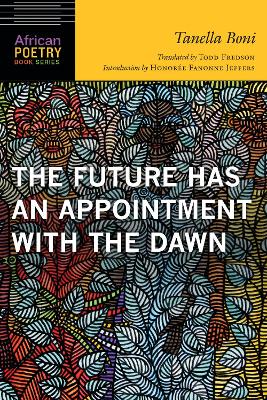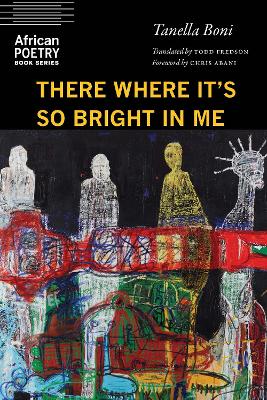African Poetry Book
2 total works
Tanella Boni is a major African poet, and this book, The Future Has an Appointment with the Dawn, is her first full collection to be translated into English. These poems wrestle with the ethnic violence and civil war that dominated life in West Africa’s Ivory Coast in the first decade of the new millennium. Boni maps these events onto a mythic topography where people live among their ancestors and are subject to the whims of the powerful, who are at once magical and all too petty. The elements—the sun, the wind, the water—are animated as independent forces, beyond simile or metaphor. Words, too, are elemental, and the poet is present in the landscape—“during these times / I searched for the letters / for the perfect word.” Boni affirms her desire for hope in the face of ethno‑cultural and state violence although she acknowledges that desiring to hope and hoping are not the same.
There Where It’s So Bright in Me pries at the complexities of difference—race, religion, gender, nationality—that shape twenty-first-century geopolitical conditions. With work spanning more than thirty-five years and as one of the most prominent figures in contemporary African literature, Tanella Boni is uniquely positioned to test the distinctions of self, other, and belonging. Two twenty-first-century civil wars have made her West African home country of Côte d’Ivoire unstable. Abroad in the United States, Boni confronts the racialized violence that accompanies the idea of Blackness; in France, a second home since her university days, Boni encounters the nationalism roiling much of Europe as the consequences of (neo)colonialism shift the continent’s ethnic and racial profile.
What would it mean for the borders that segregate—for these social, political, cultural, personal, and historicizing forces that enshroud us—to lose their dominion? In a body under constant threat, how does the human spirit stay afloat? Boni’s poetry is characterized by a hard-earned buoyancy, given her subject matter. Her empathy, insight, and plainspoken address are crucial contributions to the many difficult contemporary conversations we must engage.
What would it mean for the borders that segregate—for these social, political, cultural, personal, and historicizing forces that enshroud us—to lose their dominion? In a body under constant threat, how does the human spirit stay afloat? Boni’s poetry is characterized by a hard-earned buoyancy, given her subject matter. Her empathy, insight, and plainspoken address are crucial contributions to the many difficult contemporary conversations we must engage.

